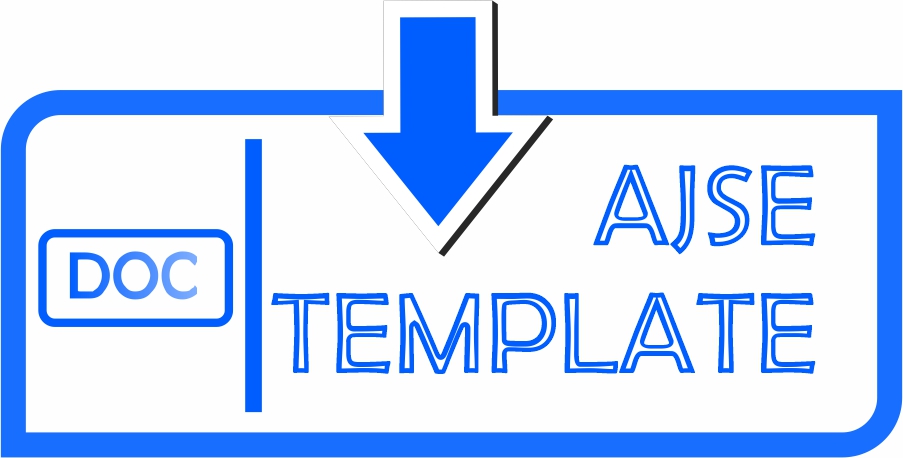URBAN WATERFRONT SUSTAINABLE MANAGEMENT WITHIN LIFE CYCLE ANALYSIS Case: South European Cities
Zulaikha Budi Astuti(1*), Arif Kusumawanto(2), Wahyu Wilopo(3)
(1) Fakultas Teknik, Universitas Gadjah Mada
(2) Dept. of Architecture, Faculty of Engineering, Universitas Gadjah Mada
(3) Dept of Geology, Faculty of Engineering, Universitas Gadjah Mada
(*) Corresponding Author
Abstract
This research develops a monitoring tool for urban plan-process based on Life Cycle Analysis by Lourenço. A special project of urban waterfront revitalization is proposed as a contribution to legitimize the LCA model. This research also proposes the influence and the success key factors of its behavior plan-process.
The model is tested through benchmarking for six waterfront cities in South Europe. Bilbao in Spain, Genoa in Italy, and Lisbon in Portugal are considered as the success projects since the urban strategy has a strong link with the urban waterfront area notified by the high intensity of the cycle for each phase. Porto and Viana do Castelo in Portugal are considered as the success projects which have a similar behavior for the action and living phase which might be due to the same project under national policy and the projects touch economic and social opportunity of the people. Aveiro in Portugal shows rupture in the beginning, followed by high intensity in the next period which has similar behavior with ideal behavior of LCA model.
This research shows the applicability of LCA Model to monitor waterfront revitalization projects and enables the discussion of conceptual issues related to the legitimizing of LCA and the present contribution. The behavior of urban waterfront area and the time dimension can be monitored and the influenced factors of the behavior can be noticed with the success key factors, those are: Planning: does the urban waterfront become the focus of the city planning? Action: does the project persistence in the design proposal? andLiving: does the urban waterfront touch social, culture and economic of the people activities?.Keywords
Full Text:
PDFReferences
Alvares, D. A. and J.M. Lourenço. 2005a. Life Cycle Modeling for Tourism Area. published paper. University of Minho. Portugal.
Alvares, D. A. and J.M. Lourenço. 2005b. Evaluation of Plan-Processes in areas for tourism development. published paper. University of Minho. Portugal.
Alvares, D. A. 2008. Avaliação de Planos-processo em Ãreas de Desenvolvimento Turistico. PhD. Thesis of University of Minho. Portugal.
Alves, L.F., M. F. Martins, and A.C. Coelho. 2000. The Contribution of an European Life Project to The Revitalization of The Urban Waterfront in a Coastal Lagoon – A Case Study From Portugal. Proceedings of the 17th International Conference of. The Coastal Society. Portland. OR USA.
Alves, L. F., M.F. Martins, A.C. Coelho, and H. Fonseca. 2002. Recuperation and Optimisation of the Ria de Aveiro’s Quays:An example of ICZM in Portugal. Article report of pilot-project - Recuperation and Appreciation of the Quays. University of Aveiro. Portugal.
Areso I. 2007. Bilbao’s Strategic Evolution. from The Industrial to The Post-Industrial City. Proceeding.Riss Osaka.
Basu, D. 2011. Waterfront Public Spaces in Port Cities: A case study of Lisbon and Barcelona. Master Thesis. Poster published.
Bisio L. and Bobbio R. 2003.The Pulsar Effect in Genoa from Big Events to Urban Strategy.38th International congress of ISoCaRP, The Pulsar Effect.Coping with peaks, troughs and repeats in the demand, Greece.
Camp, R. 1989. The search for industry best practices that lead to superior performance. Productivity Press, London.
Giovinazzi, O. and M. Moretti. 2009. Port Cities and Urban Waterfront: Transformation and Opportunities. TeMALab Journal. V. 2. 2010. pp 57-64.
Jankovska I. 2009. The Role of Urban Waterfront in Modern City Land Management. New Models for Innovative Management and Urban Dynamics. International Conference Cost Action TU602. pp 77-86.
Jormola J. 1998. Restorations of Urban Wetlands and Rivers, Towards a natural urban hidrology. International Conference of Baltic Sea region; water and waterscape in urban environtment.
Kammeier, H. D. 2003. Coping with ‘Pulsar Effects’ in the Context of Sustainable Urban Development: Towards a Conceptual Framework. Proceeding of 38th International IsoCarp Congress. pp. 27-29, Athens.
Landeiro, C., Sá A., Trigueiros, T. 2006. Increasing Integration in Cities by Tweaking Institutional Arrangements.42nd ISoCaRP Cogress, Istanbul, Turkie.
Lourenço, J. M. 2003a. Expansão Urbana, Gestão de Planos-Processo. Textos Universitários de Ciência Sociais e Humanas. Fundação Calouste Gulbenkian e Fundação para a Ciência e Tecnologia (MCES). Lisboa.
Lourenço, J.M. 2003b. Expo ‘98 and Trickling Down Effects in Lisbon. Proceedings of the 38th International ISoCaRP Congress. pp. 163-170.Athens.
Lourenço, J.M. 2010. Urban Planning/Design Through Pulsar Effects – Evidence from Portuguese Urban Areas. University of Minho Portugal. Braga.
Mullin, John, Kotval, and Zenia. 1996. The Harbour at Viana Do Castelo in Portugal: Planning in A Vacuum. European Planning Studies, 09654313, Apr 96, Vol. 4, Issue 2.
Porto Vivo. 2005. Urban and Social Renewal of the Baixa District of Oporto. MasterplanExcecutive Summary (Draft). Porto Municipality.
Portugal Ministry of Agriculture. 2011. Polis Litoral. Ourcoast Stakeholders Conference. Cândida Pestana – Polis National Coordination. Portugal.
Vazquez, I.B, S. Santos, H. Alves,, 2008. Urban Renewal Initiatives in Oporto: recent requalification projects in public spaces. University of Porto.
Walleck A.S. 1991. A race with no finish: benchmarking world-class performance. Mc Kinsey. Sydney.
Article Metrics
Refbacks
- There are currently no refbacks.
Copyright (c)
Universitas Gadjah Mada


